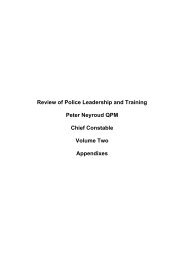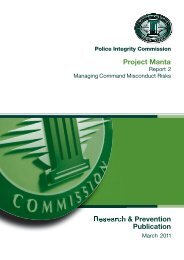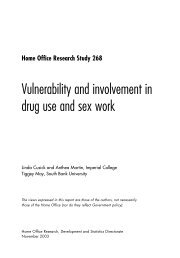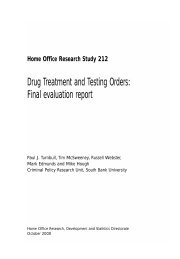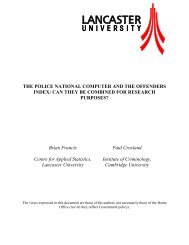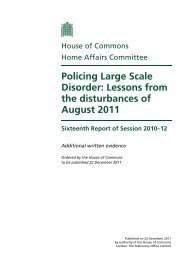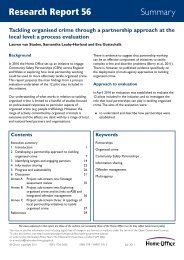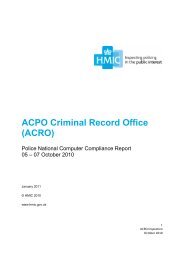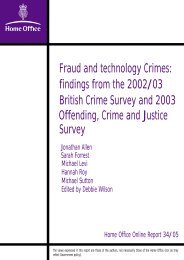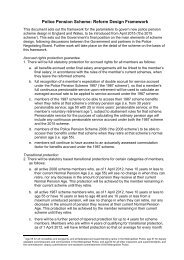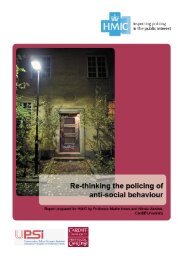Reducing Bureaucracy in Policing - Home Office
Reducing Bureaucracy in Policing - Home Office
Reducing Bureaucracy in Policing - Home Office
Create successful ePaper yourself
Turn your PDF publications into a flip-book with our unique Google optimized e-Paper software.
Over compensat<strong>in</strong>g for mistakes, particularly those with tragic outcomes can be counter-productive<br />
and create additional bureaucracy. The reaction to recent tragic high profile anti social behaviour<br />
cases has gone from one end of the pendulum to the other, from treat<strong>in</strong>g anti social behaviour as<br />
low priority to treat<strong>in</strong>g every case as high priority, with requirement to comply with procedures and<br />
complete detailed documentation irrespective of risk. This is not susta<strong>in</strong>able and fails to encourage<br />
a measured approach to learn<strong>in</strong>g and improvement<br />
<strong>Office</strong>rs also express concern that the use of professional judgment <strong>in</strong> decision mak<strong>in</strong>g is not<br />
supported by the law. Such a perception is unhelpful as case law tends to provide an alternative<br />
perspective.<br />
I am grateful to colleagues at the NPIA who have identified positive court decisions – <strong>in</strong>dicat<strong>in</strong>g;<br />
• Police work would be seriously impeded if the police were required to treat every report<br />
from a member of the public that he or she is be<strong>in</strong>g threatened with violence as giv<strong>in</strong>g<br />
rise to a duty of care to take reasonable steps to prevent the alleged threat from be<strong>in</strong>g<br />
executed;<br />
• It is unjust to expect police officers confronted with rapidly unfold<strong>in</strong>g, extreme situations<br />
to achieve the same standards as they might otherwise manage <strong>in</strong> a planned operation;<br />
• The court will take <strong>in</strong>to account the level of professional standards that existed at the<br />
time of the <strong>in</strong>cident rather than at the time the case reaches trial;<br />
• The claimant needs to show that the police officer did not act consistently with<br />
contemporary professional practice;<br />
Although each case is determ<strong>in</strong>ed on its own facts, case law demonstrates an understand<strong>in</strong>g of the<br />
demands of polic<strong>in</strong>g and the need for a proportionate, measured approach.<br />
9



